Slovakia is yet another landlocked country in central Europe, with a population of over 5.4 million.
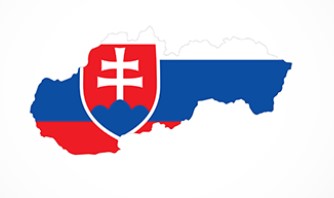
It is bordered by Poland (north), Ukraine (east), Hungary (south), Austria (southwest), and the Czech Republic (northwest). The country is mostly mountainous (Carpathian Mountains) offering views of wine-growing valleys, picturesque castles, and historical cities.
In 1536, Bratislava was declared the capital of the Kingdom of Hungary.
Getting to Bratislava from Austria was a breeze, a tiny puddle jump of a bit more than an hour. We hopped off our train and did the 600m walk to our hotel, dropped our bags and hit the streets. Our day started and ended in a sunny manner, but at around 4pm all hell broke loose as rain tumbled from the skies and flooded the roads, for about an hour.
Bratislava
Bratislava sits on the Danube River by the border with Austria and Hungary. It is the capital of Slovakia and at its heart lies the pedestrian-only, 18th-century old town. This has all of the usual mix of old buildings and churches along with the tourist shops, cafes and bars.
As usual, the big show in town is Bratislava Castle. The first written reference to the city was in 907 but the castle hill was thought to be populated as early as the late Stone Age. The first known inhabitants were the Celts, who founded a fortified settlement here called ‘Oppidum’. In the 16th century, King Ferdinand ordered the rebuilding of the castle in the Renaissance style.








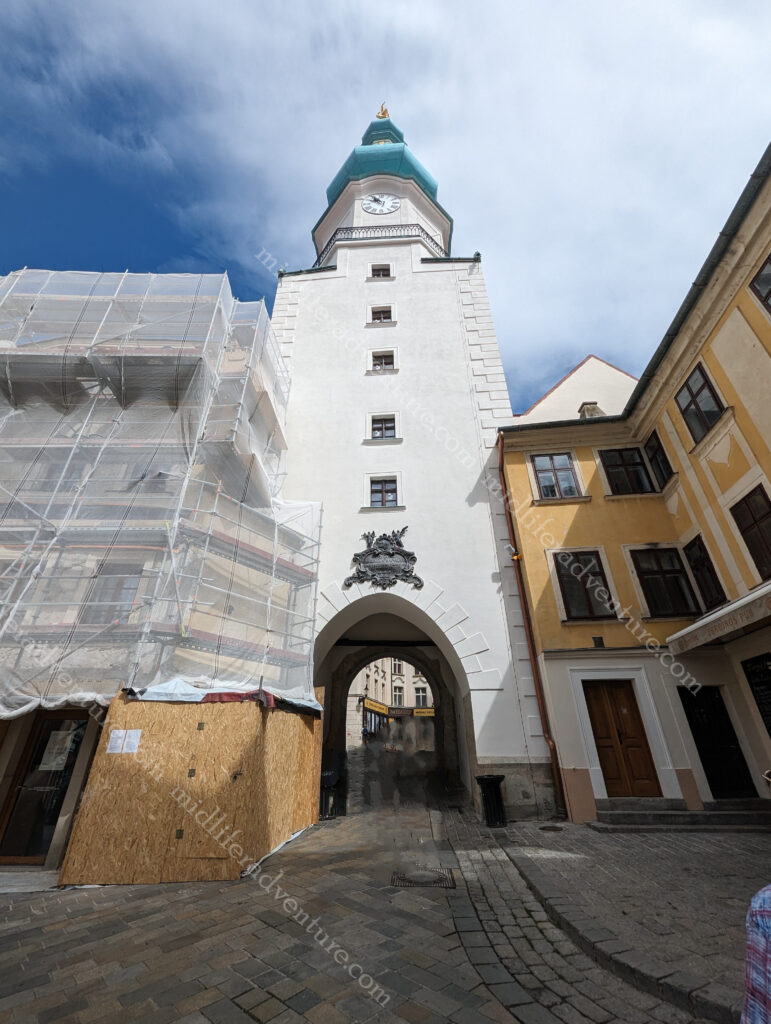
Michael’s Gate is the only preserved 14th century gate of the city fortification system.
The 51-metre-high tower provides a great view of the Castle and Old Town. The tower houses the Museum of Arms.
The SNP Bridge was built in 1967-1972 as a symbol of the Slovak National Uprising. It has a UFO restaurant on top of the 80 metre tall pylon.
The bridge is 432 m long and 21 m wide.
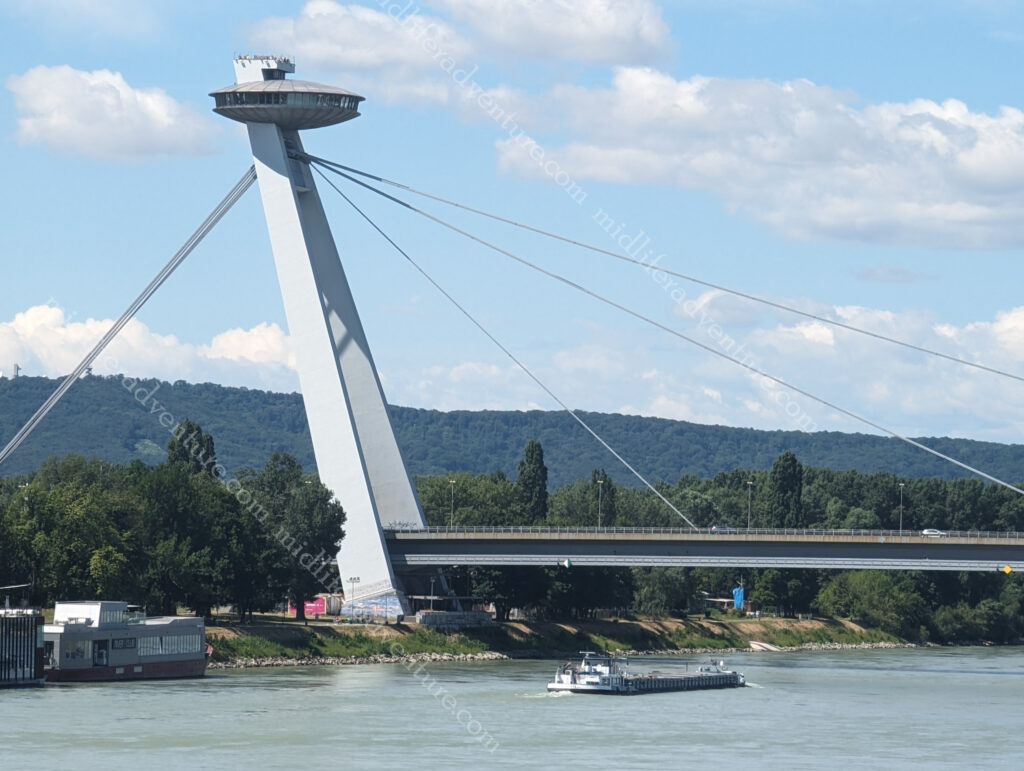
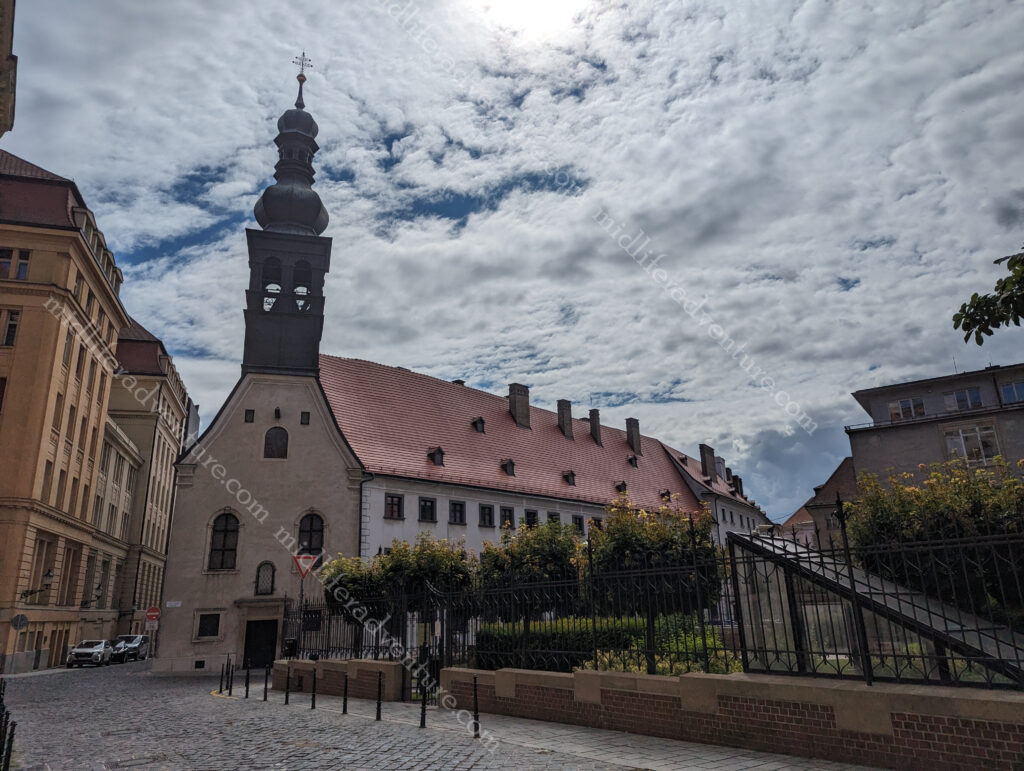
Old Town Hall is the oldest city hall in the country with the tower being built around 1370. It became the town hall in the 15th century when three townhouses were connected.
St. Martin’s Cathedral was the site that ten men were crowned king between 1563 and 1830.
The first reigning king was Maximilian from the Habsburg Dynasty, while the famous era of coronations came to an end for Bratislava with the crowning of Ferdinand V.
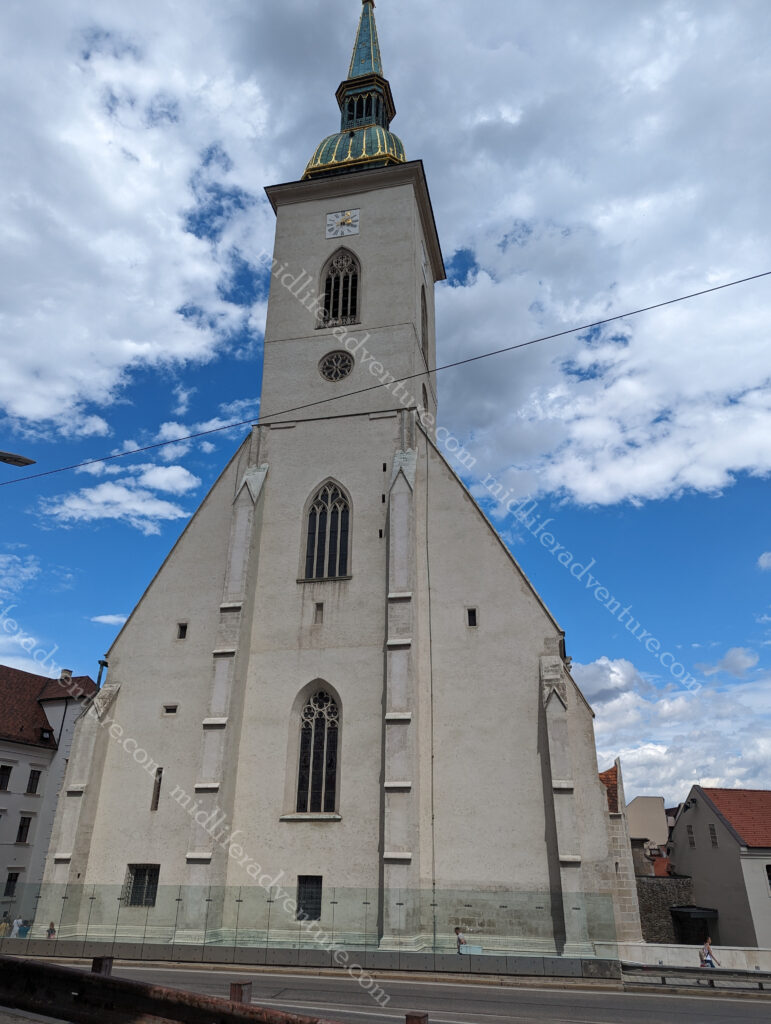
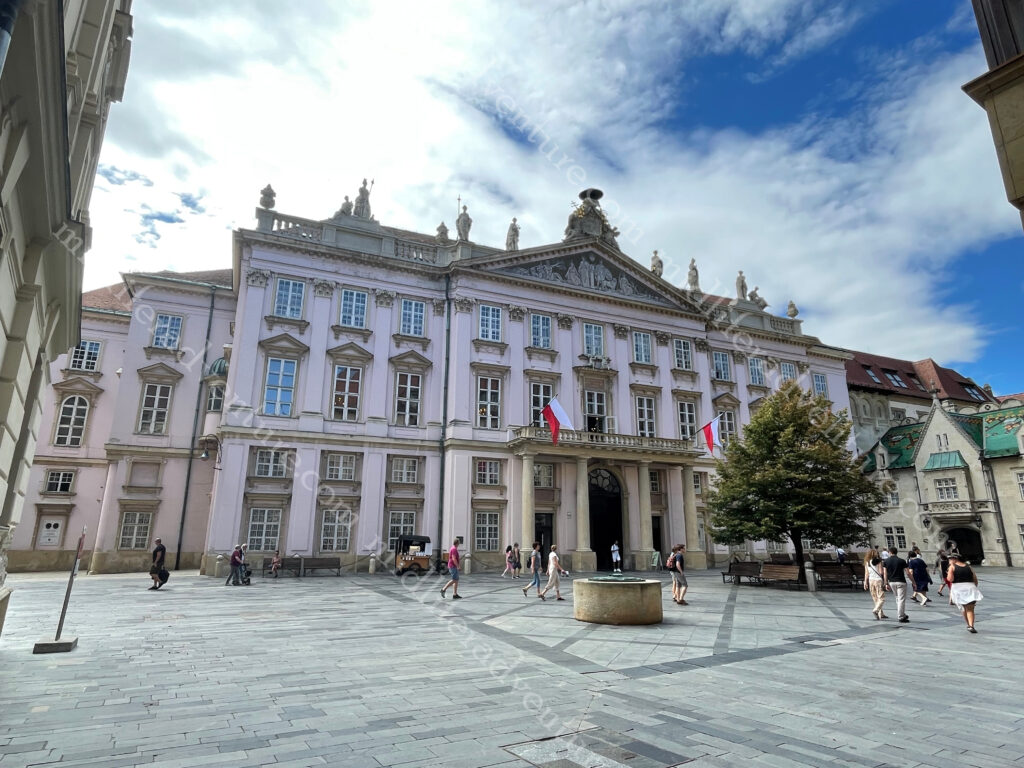
Primates Palace was built in the 18th century and today serves as the seat of the Mayor of Bratislava.
It also houses a gallery of 17th century English tapestries.
Grassalkovich Palace was built in 1760 and is now the official residence of the President of the Slovak Republic.
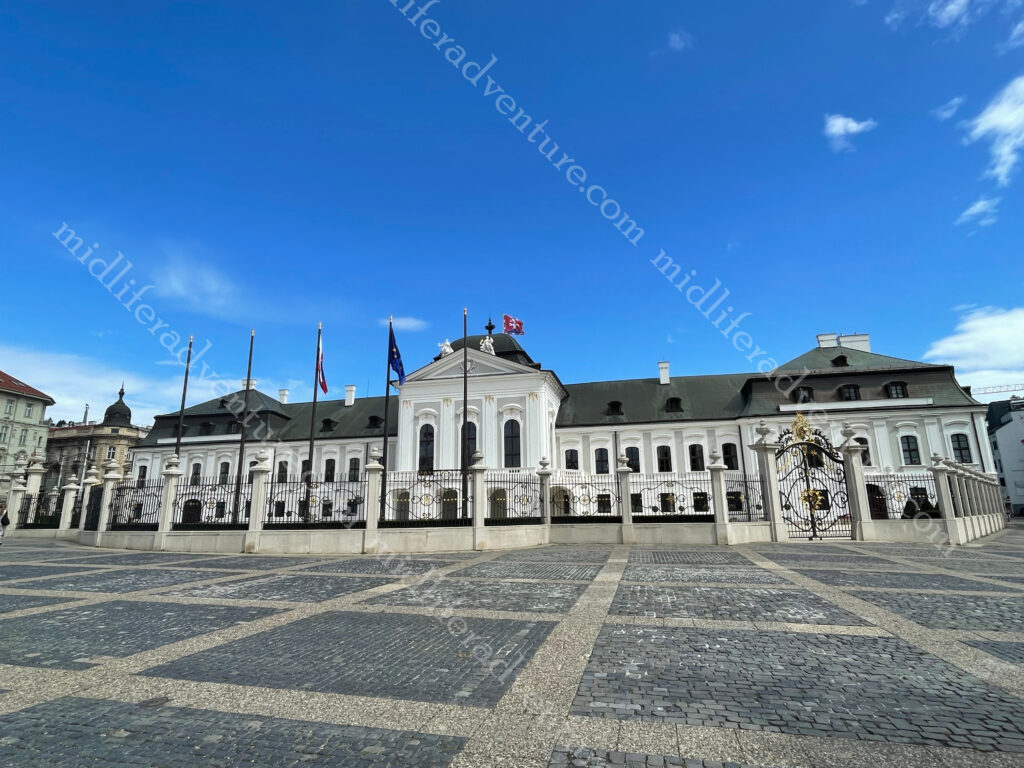
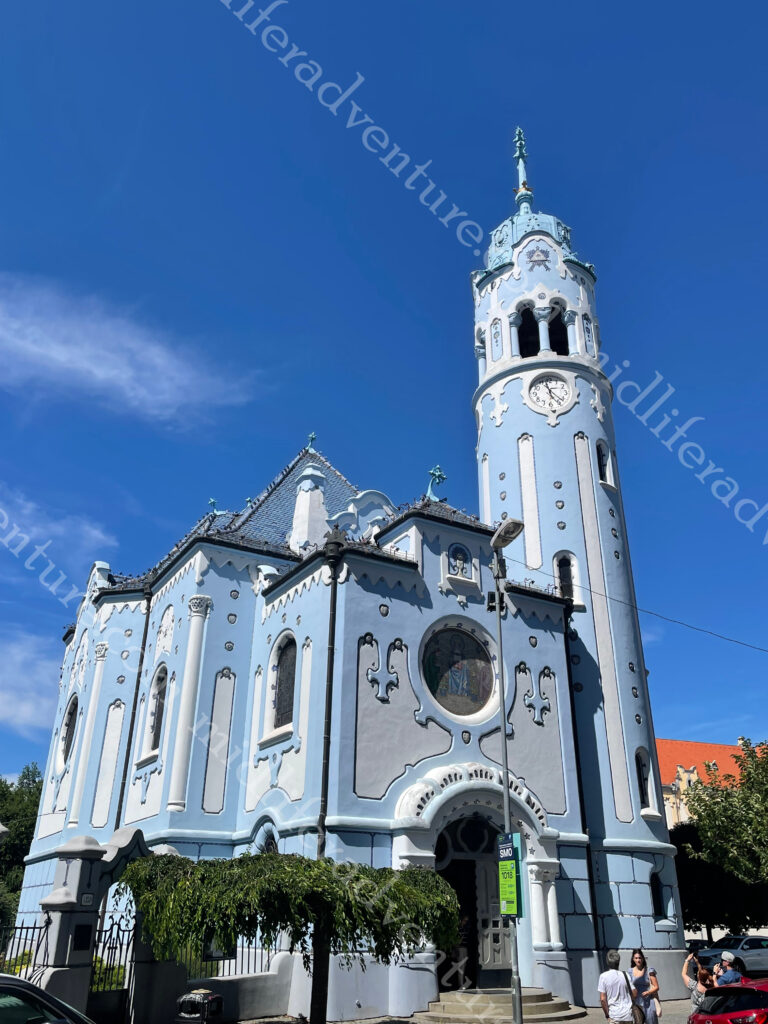
The Blue Church is officially known as the Church of St Elizabeth of Hungary.
The blurb tells me that “It is Bratislava’s most appealing art nouveau building”.
Not sure if I agree.
The Slavin is the largest war memorial in Central Europe. It is 52m tall.
It commemorates the 6845 soldiers who died during the liberation of Bratislava in World War II.
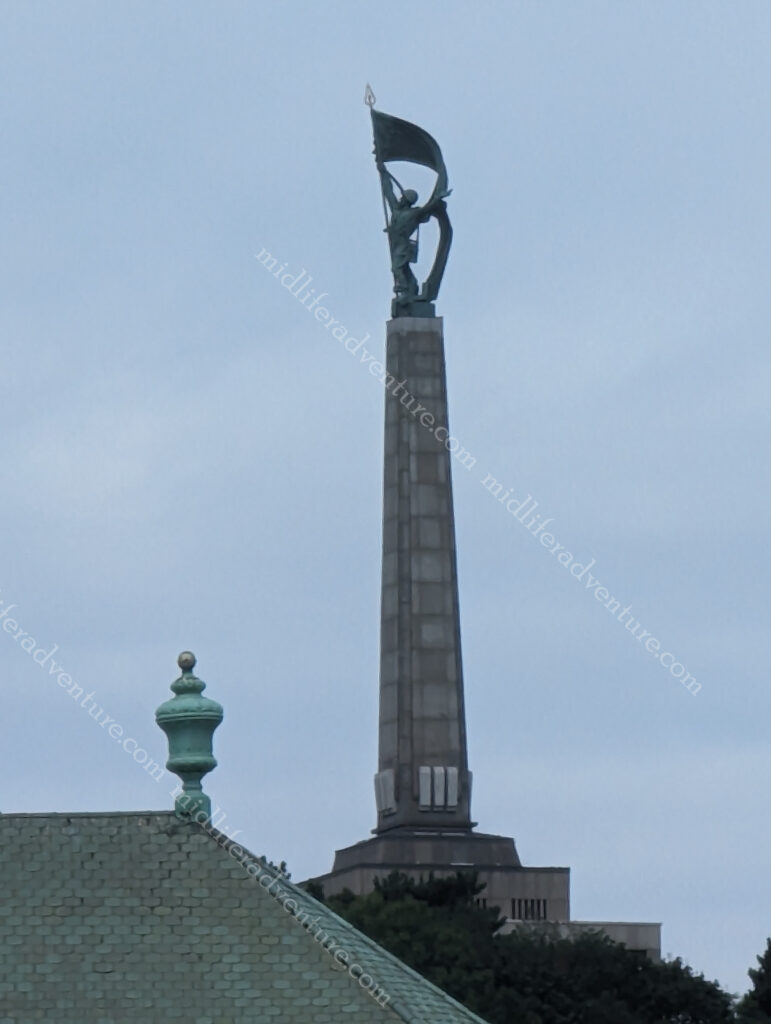
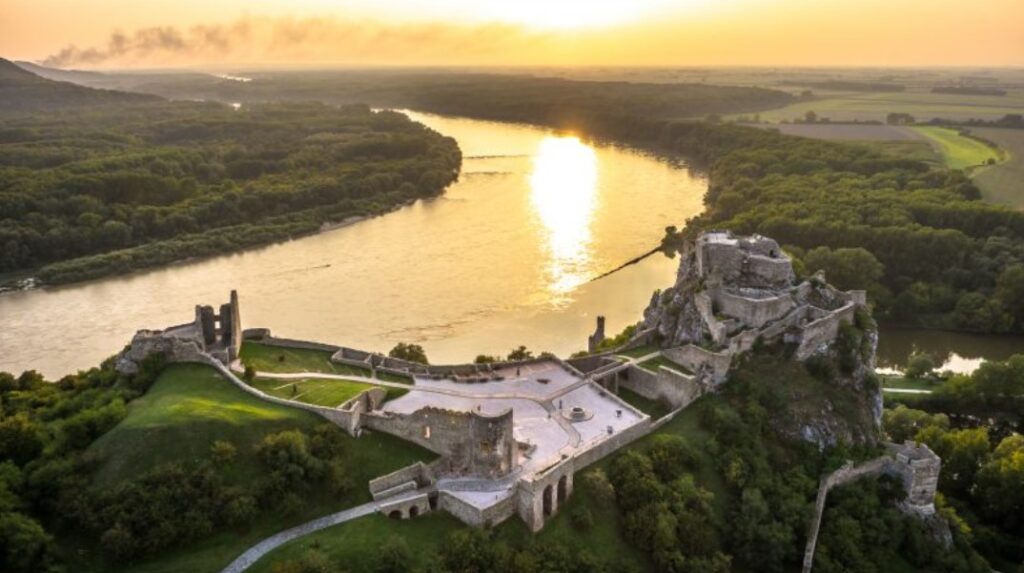
Sadly, due to a tight schedule we never got to Devin Castle. It is a castle ruin on the border with Austria, built on a high rock towering above the merging of the Danube and Morava rivers.
As our luck has been running, we jag being in town for the Bratislava Coronation Celebration, where ceremonies are reenacted by actors and enthusiasts wearing period costumes. It runs over multiple days with events such as jousting (featuring knights in armor), theater and music performances, lectures and exhibitions, and guided tours. We were sadly only in town for the procession.





Bratislava was great, however given its proximity to Vienna and the ease of access, we could easily have done this as a day trip. Hopping a train each way would give you plenty of time to see everything in Bratislava and get back to Vienna in the late afternoon/early evening thereby allowing you to spend more time in Vienna.